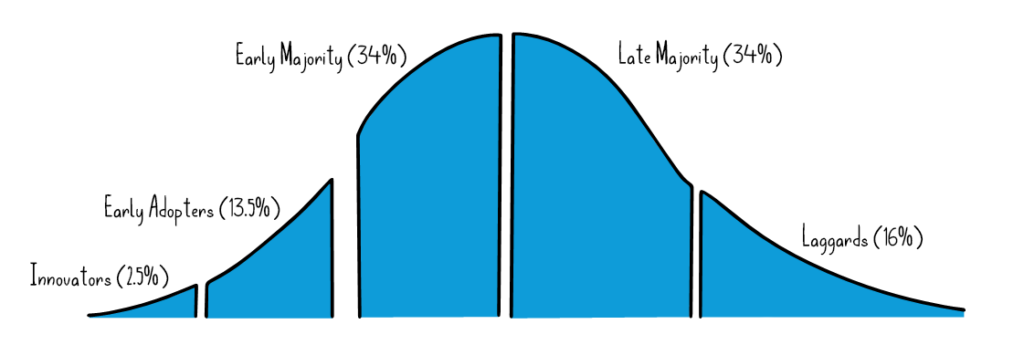BAs: Be A Leader in Boosting Agility-EN
Kathy Claycomb
- Business Analyisis
- Article
Tabla de contenidos
Recently, we were a gold sponsor at the first ever virtual Building Business Capabilities Conference (#BBCConf). As the official conference of the IIBA, the BBC is largely made up of professionals who perform business analysis, no matter their title.
In preparing for our virtual booth, our team discussed what we feel is an important message for the Business Analyst community. With the largely accepted move towards more agile work structures, BAs and the work they perform is sometimes viewed as unnecessary. While I don’t think this was on purpose, I do have two theories as to why it’s happening:
- When the Agile Manifesto was written, the terminology changed, and somehow business analysis and Business Analysts got dropped.
- Now that people are working in teams, there is no longer the need for the traditional role of the BA as a “bridge” between the business and the development team.

However, if businesses want to quickly develop products and services that deliver value and exceed customer expectations, business analysis skills must not be “overlooked”. (Notice how I said business analysis skills, not Business Analyst… the name is irrelevant as long as someone is doing the work and is skilled at doing so.) Someone performing this role is actually more important than ever.
If the pace of change and innovation are faster than ever, organizations can’t fall behind if they want to survive. The business analysis skill set is critical in ensuring that all the gaps have been identified and filled, and additionally, that time isn’t wasted on work that doesn’t deliver value.
Business Analysis is Not Dead
I am always surprised when I have conversations with students and particularly leadership about business analysis and who is performing the role. When I ask leaders why they don’t have Business Analysts anymore, they say they don’t need them now that they have user stories. Or when I ask who is doing the analysis and getting the requirements, they respond that the development team is doing it. And when I prod a little more about where the development team gets the requirements, they say the Product Owner.
While Product Owners are a crucial part of any team, many that I’ve worked with are truly from the business side. They genuinely understand their product but don’t necessarily understand how to analyze and fix the problem. A typical Product Owner doesn’t necessarily have that breadth of knowledge to understand how to get that done. They may know what needs to get done, but how to get that done might elude them.
This is the job of the BA – to understand what the needs are, what changes need to happen, what problems we are trying to solve, what value we can deliver by solving those problems, and who needs to be involved.
More specifically, in reference to the Agile Extension to the BABOK, the role of an agile BA can be broken down into three horizons. Within each of these levels, the BA should drive the answers to critical questions:
- Strategy Horizon: What initiatives should we execute based on what is going on in the current climate? Which ones are going to deliver value? What is that value?
- Initiative Horizon: Within each initiative, what features are we going to provide? Within each feature, which stories should we do and which should we not do? Will each story help us meet our strategic goals? If not, will we add it to the backlog or remove it from the project scope completely?
- Delivery Horizon: At the team level, how do we prioritize the stories that are in scope? When can we deliver the product? How will we iteratively release our work?
(Note: While this work might have a go-to association with IT projects, they are all actually applicable to non-IT projects as well.)
As you can see, business analysis is truly not dead. And fortunately, people who have business analysis skills are actually well positioned not just to help make change happen, but also to lead change and transformation in their organizations.
Going Beyond the Team
In some of my classes, I ask my students if they think of themselves as a leader. Most often, Business Analysts say “no”. Then I ask them to list the qualities of a leader. Responses vary, of course, but typically include:
- Honesty
- Passion
- Vision
- Confidence
- Decision-making skills
- Accountability
- The ability to inspire others
- Communication
- Empathy
- Resilience
- Delegation
- Ability to influence
I then ask them to identify those qualities they feel that they *don’t* possess. I typically get a lot of crickets in the room at this point…
I think that people confuse “management” with “leadership”. It’s true that most Business Analysts are not in management roles. But I believe that the Business Analyst role is almost by definition a leadership role. Great Business Analysts possess all the qualities listed above and then some. Whether they realize it or not, whether they leverage it or not, a good Business Analyst has the qualities needed to lead a team through not only product development, but a permanent transformation as well.
There are a number of key skills that leaders need in order to help their organizations through a digital transformation. Pay attention – you’ll see how closely they map to core Business Analysis skills!
Risk Identification & Response
Many businesses get blindsided by a disruption. They’re so focused on their core market that they don’t even see it coming. By helping their organizations identify and respond to risks in the marketplace, Business Analysts give their organizations extra time to respond to changes.
Critical Thinking
The dictionary defines critical thinking as “the process of thinking carefully about a subject or idea, without allowing feelings or opinions to affect you.” We analyze the facts at hand to form a judgment, typically about a subject that is complex. It is so easy for organizations to jump to conclusions and spring into action without doing the necessary analysis work first.
As Business Analysts, we can ask great questions to uncover facts, sift through the bias and emotion, use root cause analysis to get to the heart of the matter, and ensure that the necessary amount of analysis is done before embarking on a course of action.
Communication & Collaboration
Transformation efforts require that teams collaborate closely. Timely, open communication is a key to this collaboration. As Business Analysts, we are trained to facilitate these types of interactions. We are often the best communicator on our teams. These communication skills are invaluable for keeping the team synched up, on track, and moving forward as quickly as possible. It also helps us keep other stakeholders engaged and involved so that we are certain to deliver a solution that is properly targeted at the customer’s need.
Ability to Navigate Innovation & Change
I’m sure you’ve all seen this chart, which categorizes responses to innovation:

Change is hard. Responding to change forced by a disruption is even harder, and often scary. With that in mind, we can’t just re-engineer how our business does something, throw the solution over the wall, and expect that everyone in the organization will embrace it. As Business Analysts, we are in an ideal position to identify the changes that an innovation will bring to our organization and to help put a change strategy in place to ease the transition.
The New “Bridge”
It’s important to realize that change is now constant and that the next major disruption is just around the corner. I think that Business Analysts are uniquely positioned to be the unsung heroes of transformation efforts, both large and small. I’d like to propose a new “bridge” for people performing business analysis – a bridge from the old ways of working to the next “new normal” (whatever that might be for your organization).

I hope you are able to see that the value of professionals with business analysis skills. The ability to leverage your unique skillset is limitless. Don’t let anyone tell you otherwise!
Thank you,
— Kathy